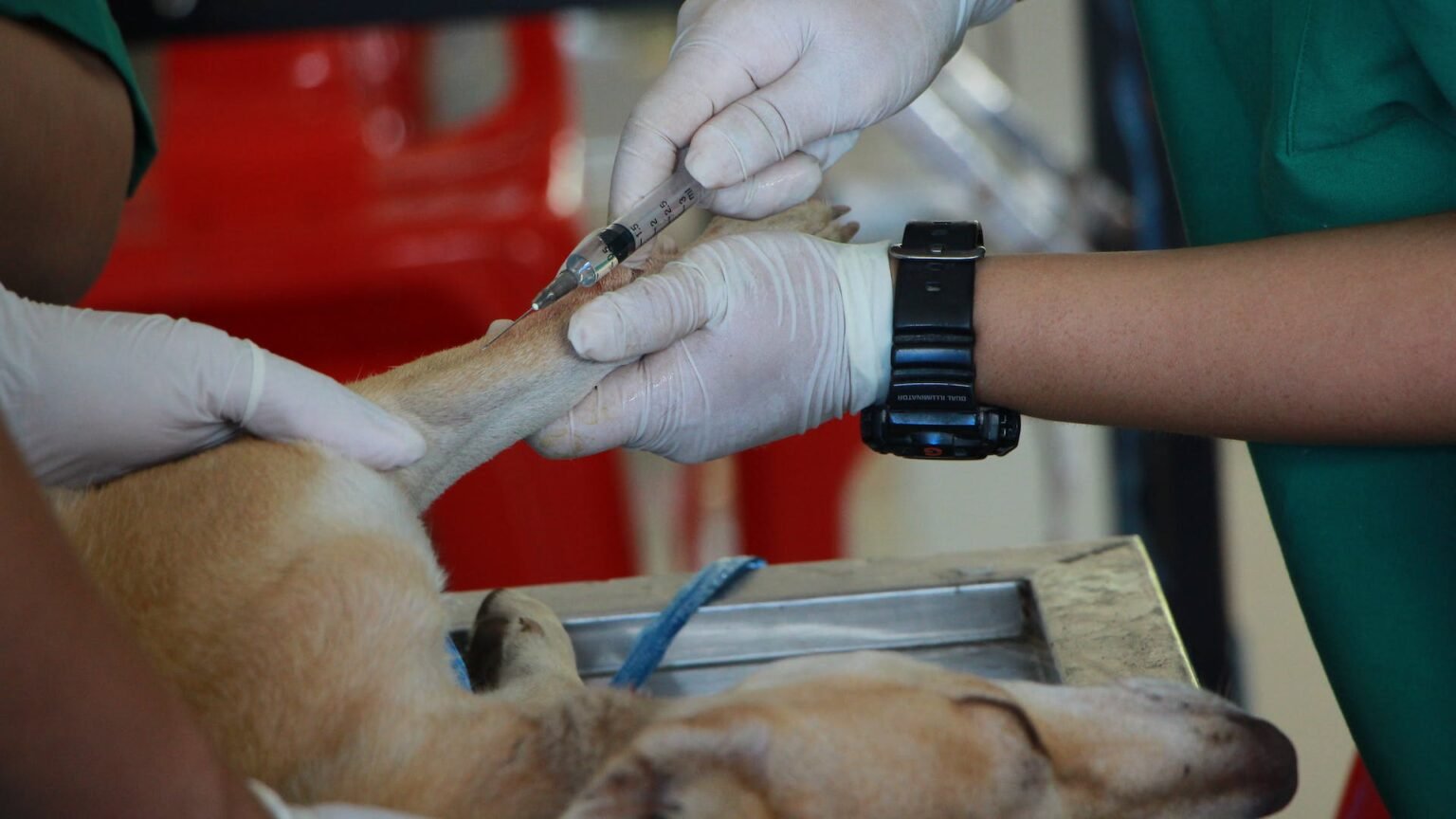As the fall season transitions into winter, a concerning surge in frequent respiratory infections among dogs has caught the attention of scientists and veterinarians nationwide. While this may seem like a cause for alarm, experts emphasize the need for awareness and vaccinations to safeguard our beloved canine companions.
Understanding the Normalcy: Insights from Veterinary Specialists
Routine Outbreaks: A Seasonal Phenomenon
-
- Veterinarian Dr Susan Colfer sheds light on respiratory outbreaks among dogs every year or two.
- Emphasizes the current outbreak’s resemblance to the norm but with peculiar prolonged coughing in affected dogs.
Statewide Trends: From Pueblo to the Western Slope
-
- Ragan Adams, a state veterinary extension specialist, discusses Colorado’s observed uptick in respiratory illnesses.
- Highlights symptoms like coughing, snoring, and eye-related issues, prompting heightened vigilance among dog owners.

Unraveling the Mystery: Scientists’ Quest for Answer regarding Frequent Respiratory Infections in Dogs
Nationwide Investigation: Oregon State University Takes the Lead
-
- Details the ongoing investigation led by scientists from Oregon State University to identify a potential causative agent.
- Underlines the uncertainty surrounding the current outbreak’s origin.
The Mycoplasma Conundrum: Seeking Consensus
-
- Discusses the scientists’ focus on mycoplasma in their testing efforts but stresses the need for more consensus on its role in the outbreak.
- Dr Colfer’s insights on the prolonged coughing duration raise further questions about the nature of the infection.
Expert Advice: Navigating the Unknown
Cautious Optimism: No Cause for Panic
-
- Adams reassures dog owners, urging them not to panic but to exercise wisdom.
- Stresses the vulnerability of older dogs and young puppies, emphasizing the importance of prompt veterinary contact when symptoms arise.
Avoiding Exposure: A Key Precaution
-
- Veterinarians advise against exposing dogs to potentially contaminated environments.
- Recommends avoiding dog parks and limiting contact with unfamiliar dogs to curb the spread of the infection.
Vaccination: A Shield Against Uncertainty
Vaccination Essentials: DA2PP and Bordetella
-
- Highlights the significance of up-to-date vaccinations, including the DA2PP vaccine, needed every 1-3 years.
- Recommends the Bordetella vaccine for protection against canine upper respiratory infections, especially for dogs in close contact with other animals.
Booster Shots: Bolstering Canine Immunity
-
- Advises regular Bordetella booster shots every 6–12 months to enhance immunity.
- Considers the dog’s age and preexisting health concerns when determining vaccination needs.

Preventive Measures: Water Bowls and Socialization
-
- Recommends avoiding standard water bowls to minimize the risk of exposure.
- Dr. Ronit Berdugo emphasizes abstaining from pet socialization during the outbreak.
Conclusion: A Call to Canine Guardianship
In conclusion, while the surge in canine respiratory infections raises concerns, a proactive approach can mitigate risks. By staying informed, vaccinating responsibly, and heeding expert advice, dog owners can contribute to the well-being of their furry friends.

